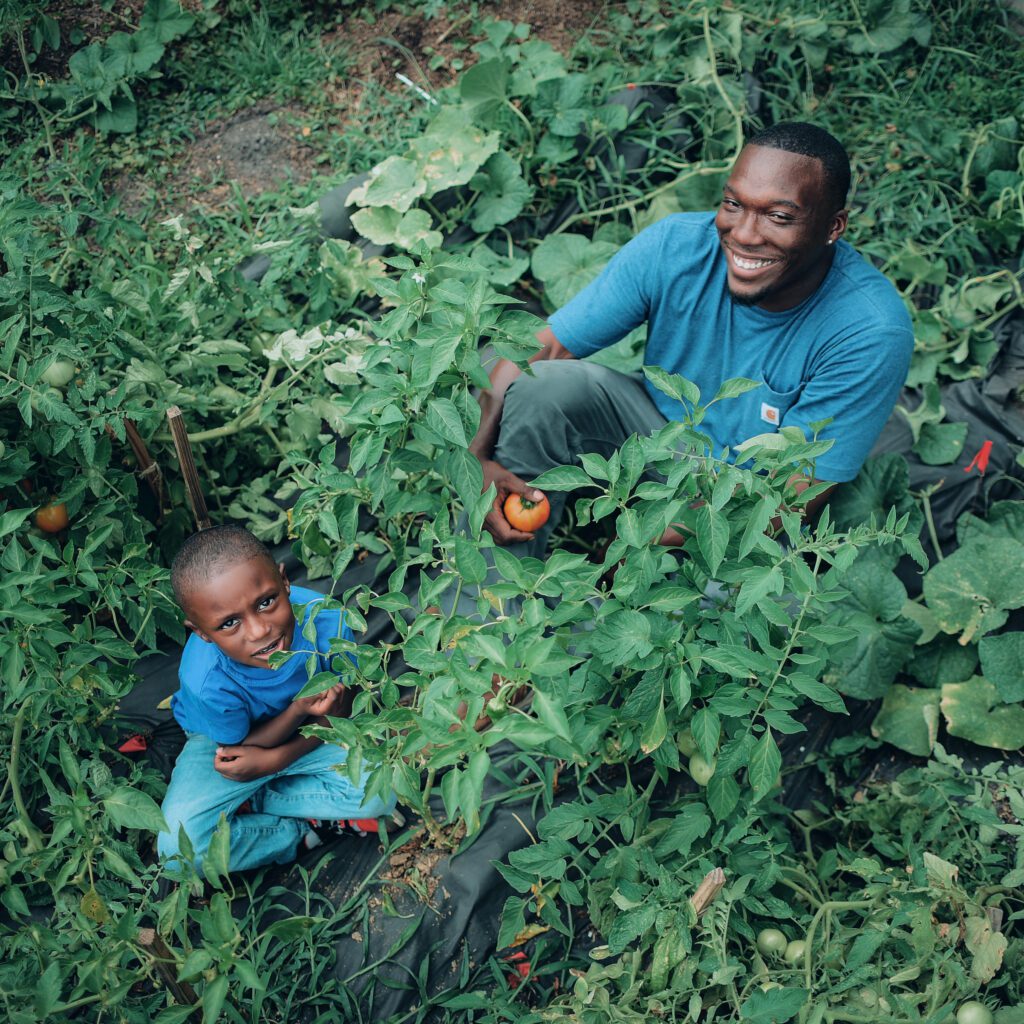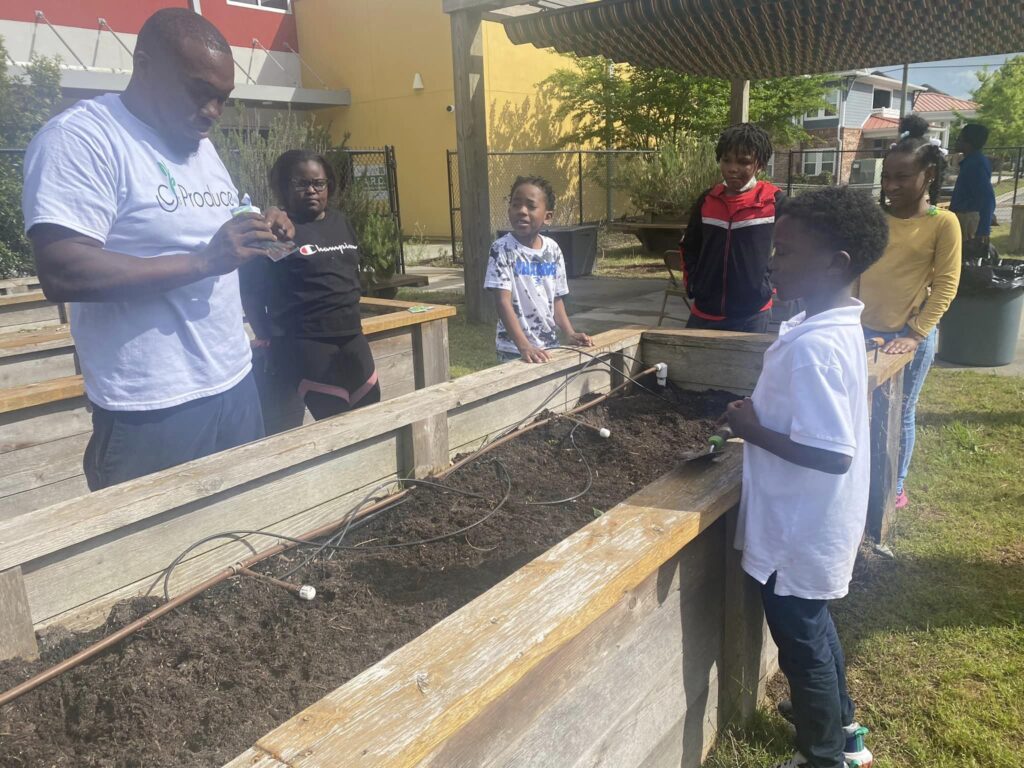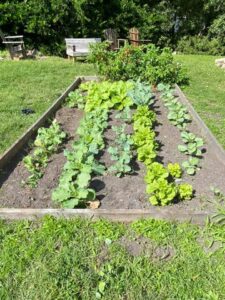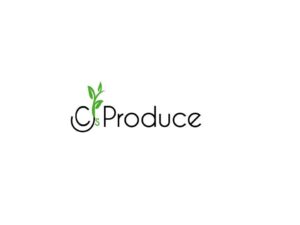Jan 22, 2024Urban grower’s plots help feed neighborhood
Edwin “Craig” Thomas Jr. took his knowledge of growing vegetables, which he learned from his father, to help address food insecurity in Savannah, Georgia, in one of the oldest free Black neighborhoods in the South.
His business, CJ’s Produce, is named for his 6-year-old son, and grows vegetables for residents of a neighborhood who don’t enjoy easy access to grocery stores. The community gardens and vegetable plots provide nutritious food and help rebuild the Cuyler-Brownville Historic District, a neighborhood founded by freed slaves.

It isn’t easy growing vegetables in coastal Georgia’s challenging environment, where temperatures can jump to 90° Fahrenheit and 90% humidity following frequent spring rains.. High volumes of peppers can be harvested one day, but torrential rains can destroy crops.
For drainage, Thomas dug trenches and tried adding dirt, but was overwhelmed by the water volume. Winter temperatures are a mild 70 degrees. Savannah’s soil and environment are much different from the family’s central Georgia homestead, two hours west of Savannah.
His George Washington Carver Community Garden implements the agriculture innovator’s crop rotation methods. In general black history, Thomas said he always heard about crop rotation. His grandfather told the family about planting certain crops in particular areas of the fields during specific times and not planting one crop on top of another. What one crop removed, such as nitrogen, the other crop would return to the soil.
“I am using crop rotation because it works better for me,” Thomas said. “Everyone may not do crop rotation, as it depends on the soil. Soil health is the most important thing. If you don’t have good soil, or if you’re not adding the right nutrients to the soil, you’re not going to get anything, or the things you do get may not taste good and may not produce as much or as big.”

Banana water adds potassium and nitrogen to the plants. Thomas discovered that soaking three banana peels in water for two days, and adding that water to the soil, reverses nutrient deficiencies and relieves plant sluggishness and yellowing.
Recalling how his grandfather used flowers to attract pollinators, Thomas recently began planting flowers and cover crops. Sunflowers attract pollinators, including honeybees and hummingbirds.
Surprisingly, pests aren’t a big obstacle. In the region, whiteflies visit plants, but infestation hasn’t been severe. Marigolds and herbs including dill, spearmint and sage help repel insects. Marigolds work well with tomatoes and peppers.
Weeds aren’t a major problem, either. Though Thomas deployed a netted black weed blocker, rains helped weeds grow through the fabric. Three hours of hand weeding can keep weeds in check.
After a recent disappointing season, Thomas noticed more bee, wasp and hummingbird activity, which helped produce a large cucumber harvest. Root rot, however, has been a big problem during the last three years.

Though every season is different, Thomas usually begins harvesting in April after the last cold snap, but this year favorable weather allowed an early March start.
In 2017, Thomas first planted leafy greens, tomatoes and cucumbers. Word soon spread and neighborhood residents requested he deliver produce to them, with some picking their own.
Thomas also grows broccoli, cauliflower, bell peppers, banana peppers, sweet corn, collard greens, cabbage, potatoes, sweet potatoes and blueberries.
Trying new vegetables interests Thomas. Last year, rutabaga grew well and saw high demand in the nonprofit Forsyth Farmers Market in historic Forsyth Park, where he sells some of his produce.
Thomas entered urban farming as a lesson from his father, Edwin Thomas Sr., after CJ was born. Edwin wanted to show his son how gardening and farming are like marriages: one must “weed” out the problems and give fertilizer (love) for the plants to grow.
Telling his son he had to garden and “better like it,” Edwin made sure Craig picked every weed and bug out of his first plot in temperatures above 100° F and lectured him daily.
 On weekends, the younger Thomas cleaned neighbors’ flower beds and vegetable plots.
On weekends, the younger Thomas cleaned neighbors’ flower beds and vegetable plots.
Thomas met his wife Leslie, CJ’s Produce’s operations director, at Fort Valley State University in central Georgia. Leslie, a University of Georgia Cooperative Extension family and consumer sciences agent, provided Thomas valuable information and resources, including beehive procurement and irrigation methods, when he started growing before they married.
“It was an eye-opener to know Extension had these types of things, keeping me up to date with what’s going on and what was available,” Thomas said. “Extension is way more needed than what we might think.”
Thomas, who installs wood finish furniture accent pieces in Gulfstream private airplanes, designs handcrafted planter boxes and backyard plots. A friend who viewed Thomas’ work on social media provided him a plot to grow vegetables. Thomas also grows at another community garden and at his own home, while his main plot is in his parents’ backyard.
Soon after he first started, he spread the word by knocking on neighbors’ doors to let them know what he was growing. Residents, particularly the older ones who don’t have transportation to grocery stores, made him a part of their community.
Many had never experienced the taste of fresh tomatoes.
“This work has turned into therapy and has made me want to give back more and more and spread the knowledge,” he said. “Getting blisters on my hand, sunburned from standing outside for hours and weeding by hand has brought me a sense of peace. You don’t have to have acres to be a farmer.”
Part of Thomas’ mission is sustaining Black-owned property.
“It’s not just land,” he said. “We understand it’s not just a place. Why not keep it where we originated?”
















